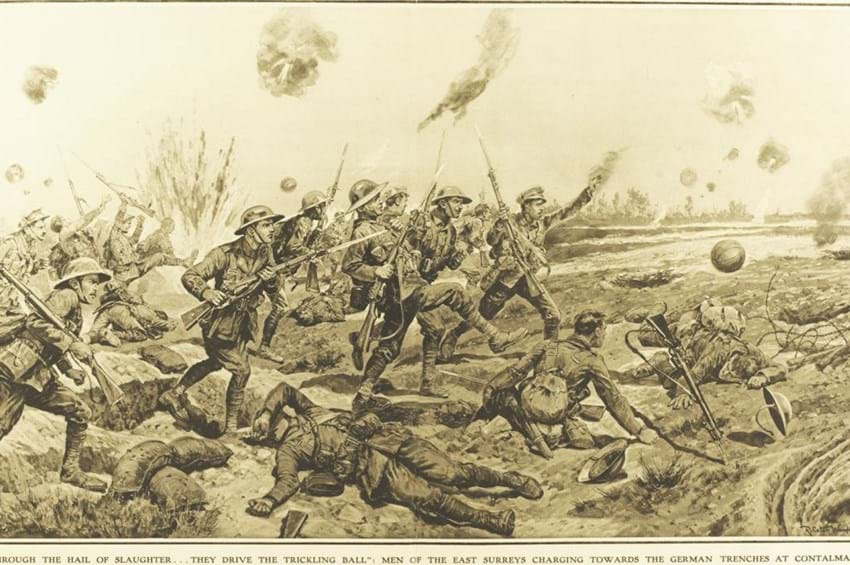The Battalion Which Dribbled Football's Across No Mans Land Towards the German Guns on 1st Day of the Somme 105 Years Ago Today – 1st July 1916
01/07/2021 | Matthew Tredwen

The 8th Battalion East Surrey regiment were tasked with attacking Montauban on 1st July.
Whilst on leave in the UK, a Captain W P Nevill purchased two footballs and took them back to the front line with him. On the eve of the attack, he gave the balls out and instructed his men that they would kick the balls across no mans land on the advance to the German trenches, an extract from a letter written at the time gives the following details:
“There were two footballs, and on one was painted ‘The Great European Cup – Tie Final East Surreys v Bavarians Kick off at zero’. On the other in large letters was this “NO REFEREE”, which was W’s way of telling them men they needn’t treat the Hun too gently”.
The Gallant East Surreys gives the following account, “The captain on one of the companies had provided four footballs, one for each platoon, urging them to keep up dribbling competition all the way over the mile and a quarter of ground they had to traverse. As the company formed on emerging from the trench, the platoon commanders kicked off, and the match against death commenced. The gallant captain himself fell early in the charge, and men began to drop rapidly under the hail of machine-gun bullets. But still the footballs were booted onwards, with hoarse cries of encouragement or defiance, until they disappeared in the dense smother behind which the Germans were shooting. Then, when the bombs and bayonets had done their work, and the enemy had cleared out, the Surrey men looked for their footballs, and recovered two of them in the captured traverses. These will be sent to the Regimental Depot at Kingston as trophies worth preserving”.
This act was picked up by the British media at the time and used as a great political propaganda tool to deflect from the severe losses suffered by the British army during the 1st day of the Battle of the Somme, which has gone down in history as one of the worst military disasters in the history of the British army

